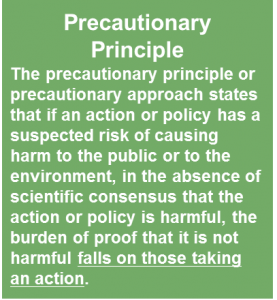
As a “possibilist” I am triggered by the idea of having a positive impact and moving things forward, so when I recently saw the TED Talk by IKEA CSO, Steve Howard – “Let’s go all-in on selling sustainability” (Link) – I was thrilled when he asked the rhetorical question
“Why wouldn’t we want to have a positive impact on the world?”
This is probably one of the most essential and simple questions to ask yourself, other people and businesses. (Try to come up with an evasive answer without compromising yourself…)
Even if there are still many questions to ask, many behaviours to change and many inequalities to remove before we get to a sustainable world, there are some attitudes that really needs to be worked on, to enable and speed up the journey.
One of them is; What is regarded as Positive?
- Is it positive that overall consumption is increasing…
- Is it positive that more and more cars are manufactured…
- Is it positive that flying increases with more than 27.000.000 airplane-rides, every year…
- Is it positive that more people than ever are getting out of poverty…
- Is it positive that one elephant is killed every 15 minutes…
These are some of the big, complex and multifaceted issues we are facing today. In the past, issues like these were treated separately, but today when combined effects of human society have reached our planetary boundaries and in many cases already have passed them, we need to urgently reconsider what we really mean with a Positive Impact.
Example:
If you are employed in the car industry, your first thought is that increased car manufacture means guaranteed work for me – that is positive. If you look a little wider, you will see that the major increases in car-purchase are in the developing countries, which simultaneously also leads to huge investments in new infrastructure (roads, bridges, gas-stations etc.) to accommodate the traffic increase. It also leads to a behaviour-shift where the society becomes more and more dependent on cars – local easy access stores are replaced with shopping-malls at the city borders and so on.
If we then widen the view even more, we know today that if we don’t bring emissions down we’ll be facing devastating climatic consequences. When we now urgently need to stop burning fossil-fuels, what happens?
From this perspective – Is increased car manufacture still Positive?
We urgently need to look beyond our immediate national, corporate and individual “comfort-zone” and put issues in a planetary perspective. By doing so we can avoid racing at full speed into “dead-ends” and instead “ease on the throttle” and search for Sustainable solutions…
Burden of proof
One thing I really cannot understand is why the “Burden of proof” is distributed the way it is.
Although the negative effects from our current way of life are becoming more and more visible to all of us, it is still up to individuals, NGO’s and other organisations to prove “beyond any reasonable doubt” that these effects are real.
 Why is it not corporations, governments and others that have to prove, through peer-reviewed, unbiased science and “beyond any reasonable doubt“, that their business or behaviour is not harmful to our planet and to our existence?
Why is it not corporations, governments and others that have to prove, through peer-reviewed, unbiased science and “beyond any reasonable doubt“, that their business or behaviour is not harmful to our planet and to our existence?
And until such proof are presented and verified, the Precautionary Principle, should kick in by default.
Instead it almost seems as if “Anything is OK as long as it is not proven otherwise “by someone else”, and if proof is presented, they are only valid if they are not too expensive to fulfil or in other way’s interfering with business…”
Some people may argue that if we always were to apply the Precautionary Principle it would harm or at least slow-down “progress” and thereby also growth… Where are the arguments here – progress for whom – If progress means that our existence on this planet is under threat is it still progress?
Within the next few decades our population will grow with 2 Billion, at the same time more than 3 billion people will move from poverty into middleclass – real progress is to accommodate for this to happen without devastating an already hurting planet even more and at the same time reduce our adverse impact on the climate – not much point in bringing billions to a better life just to immediately realize that such a level of exploitation of our planet means that it is “Game Over” for all of us…
Our planet cannot be used as collateral to further increase economic wealth for the privileged few, it is “needed” elsewhere…
“Positive” explained…
In a couple of previous articles (here and here) I have tried to put focus on an extremely important issue when it comes to Positive Impact:
“Being less bad, doesn’t mean that you are Good”
– William McDonough
To be Positive you have to be “Above Zero”…
 If a corporations economic output is below zero we always refer to it as a loss. This loss doesn’t become a Profit until it reaches above zero – simple mathematics!
If a corporations economic output is below zero we always refer to it as a loss. This loss doesn’t become a Profit until it reaches above zero – simple mathematics!
At the same time when corporations relate to the other sustainability aspects, People and Planet, they always start where they are, and every small reduction in negative impact is then broadcasted as “More sustainable”…
Any reduction in negative impact is of course good, but I don’t understand why corporations who would never dare to replace “reduced loss” with “increased profit” unless they first pass zero – so blatantly act otherwise when dealing with other sustainability aspects…
This simple mathematics may seem “arid” but it is extremely relevant in the context of Positive Impact – below zero is always un-sustainable regardless how much below it is.
Just the other day I read that someone was actually questioning whether “Sustainable” had become a dirty word due to a lot of misuse in various “Green-wash” activities and recently when I tried to post an article on a specific “discussion-forum” I was urged by the “group-administrator” to rephrase my post because “Sustainable is not enough, since the term has lost any specific meaning…”
I don’t know which dictionary the group-administrator was referring to, if you just look in Wikipedia; Sustainability is probably one of the most extensively explained words in the database with literally hundreds of reference-links to peer-reviewed data.
Sustainability is the right word – boycotting it in its right context is like “throwing in the towel” giving green-wash a carte blanche to use it in whichever way they like.
Instead we need to unremittingly continue questioning its deceptive use and demand clarity.
Where is the sustainable bottom line?
This is a question I have heard a number of times – my counter question always is; “Why do you want to know?” – So I don’t overdo thing… As if it would be a problem if you become too positive…
If you need to ask this question there is a risk that you are still stuck with the idea to just comply with the absolute minimum standards or regulations required.
“You’ll never find your limits until you’ve gone too far.”
– Aron Ralston
Positive Impact “revisited”…
Sometimes I get a feeling that some people, corporations and even governments look at environmentalists, organisations and people working for a Sustainable future with scepticism
– “Who are these people trying to “wreck” our current way of life…”
It’s almost as if the current over-exploitation of our Planet, the rapidly increasing inequality in our society and the on-going extinction of species should be regarded as neglectable and/or unavoidable outcomes – some kind of misinterpreted “Scorched earth tactics” – only problem being that it is targeted towards our existence, our future generations, our kids and their kids…
Positive impact is about transforming our lifestyle into a lifestyle that eventually can be shared by all people on this planet, a lifestyle enabling all people to live a good life in balance with our planet – for a long time forward…
 Do you think young people entering the job-market rather would work for a company focused on having a positive impact on the world, or would they prefer a company only trying its best to obey the rules and regulations…?
Do you think young people entering the job-market rather would work for a company focused on having a positive impact on the world, or would they prefer a company only trying its best to obey the rules and regulations…?
Do you think customers and clients would reward and be more loyal to companies focused on having a positive impact on the world, or would they prefer a company only focused on bringing profit to its owners…?
Do you think new voters would put their votes on a candidate with a very clear roadmap showing a positive impact on the world, or would they rather vote for a candidate focusing on maintaining the current “status-quo”?
What about you – Where do you want to Live, Work, Shop and Vote…?
…Wouldn’t you want to make a positive impact on the world…